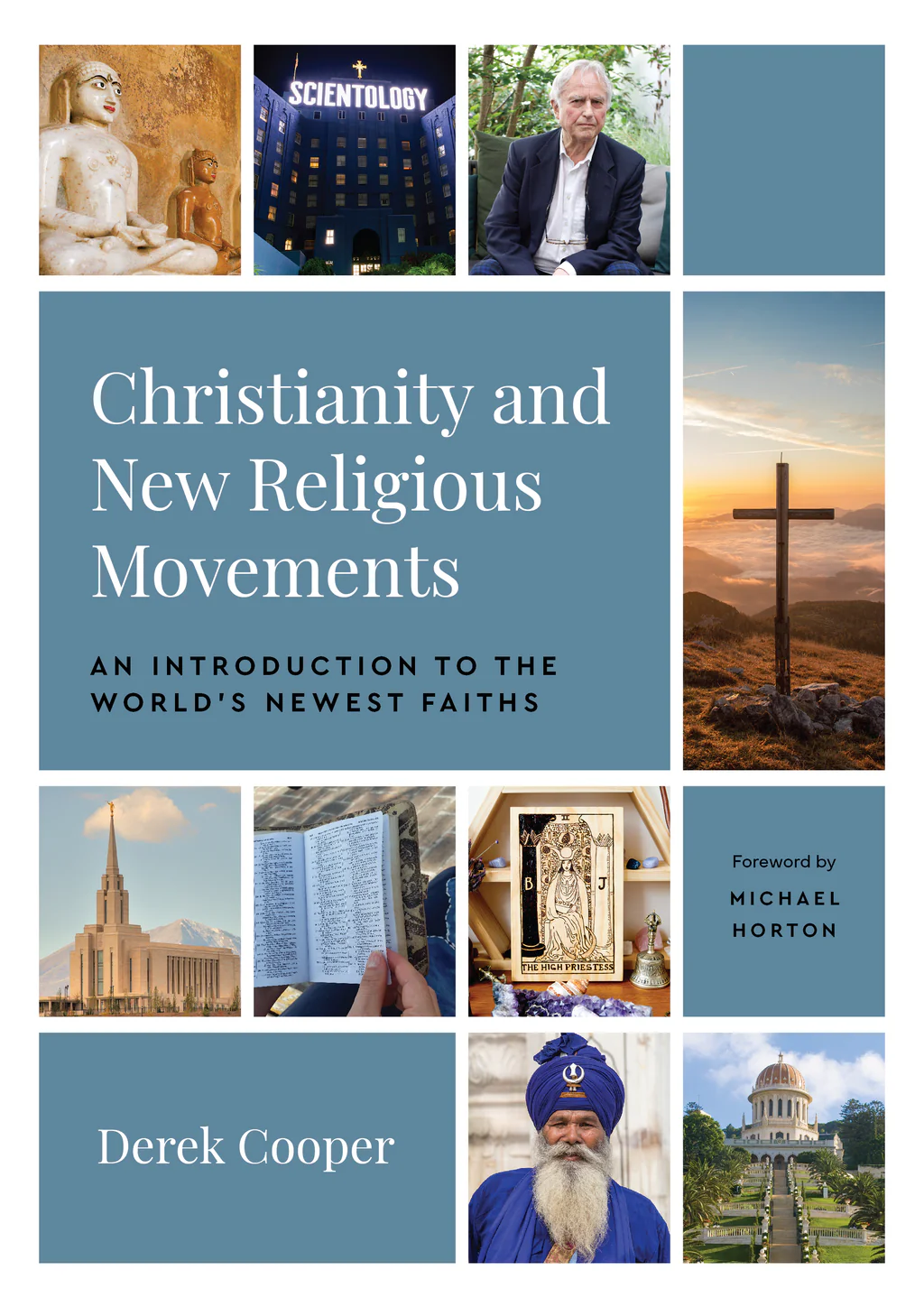
Derek Cooper
Reviewed by: Peter Morrison
Christianity and New Religious Movements: An Introduction to the World’s Newest Faiths, by Derek Cooper. P&R, 2023. Paperback, 280 pages, $22.50. Reviewed by OP member Peter Morrison.
What do you have in common with your new Sikh coworker? How can you relate to your Wiccan family member? How should you share the gospel with Mormon missionaries? These are the type of questions Derek Cooper seeks to answer in this book.
Cooper excels in the use of history, biography, and theology to introduce other religious ideas to the Christian reader in an earnest way. He takes his subjects seriously and presents their beliefs in the sincerest light possible. He writes from experience, not just research, often relating personal interactions with his subjects like visits to their places of worship and evidencing a deep familiarity with their beliefs and practices.
Cooper’s subjects are newer religious movements that act as offshoots, fusions, or reinterpretations of earlier faith traditions. He divides the new religious movements into five sections based on the religion they evolved from—Hindu, Muslim, Christian, Pagan, and Uncommitted. For more background on the major world religions, the reader would likely benefit from Cooper’s earlier work, Christianity and World Religions: An Introduction to the World’s Major Faiths (P&R, 2013).
For the first eight subjects—Jainism, Sikhism, Baha’i, Nation of Islam, Mormonism, Jehovah’s Witness, Wicca, and Scientology—Cooper begins with the group’s creation mythology, explains their historical origin, details what, if any, religious writings are foundational, which leads into a discussion of key or distinct beliefs, explains their worship practices, and concludes with a “point of contact.” The final section is his advice to the Christian on how to approach adherents to this movement.
The final two, Atheism and Nones, are distinct enough from the other subjects that it forces the author to break his format; these sections feel slightly disjointed, given the flow of the rest of the material. However, because of the apologetic drive behind the book and the reality of our post-Christian age (as discussed in Michael Horton’s foreword), it does make sense to include these two.
Christianity and New Religious Movements presents like a college textbook with full-color pictures, footnotes, and margin notes. The reader will also benefit from the discussion questions, suggested further reading, a glossary to help identify less familiar terms, and an index of subjects and names. William Edgar’s endorsement captures the spirit and use of the book perfectly: “The book is an apologetics treasure trove. It should equip believers not only to observe more carefully but to engage adherents and bring them the gospel, with both accuracy and compassion.”
April 13, 2025
Suffering: God’s Purpose in Our Pain
April 06, 2025
Sunday Matters: 52 Devotionals to Prepare Your Heart for Church
March 30, 2025
On the Trail with a Missionary
March 23, 2025
Midnight Mercies: Walking with God Through Depression in Motherhood
March 16, 2025
March 09, 2025
Zwingli the Pastor: A Life in Conflict
March 02, 2025
© 2025 The Orthodox Presbyterian Church